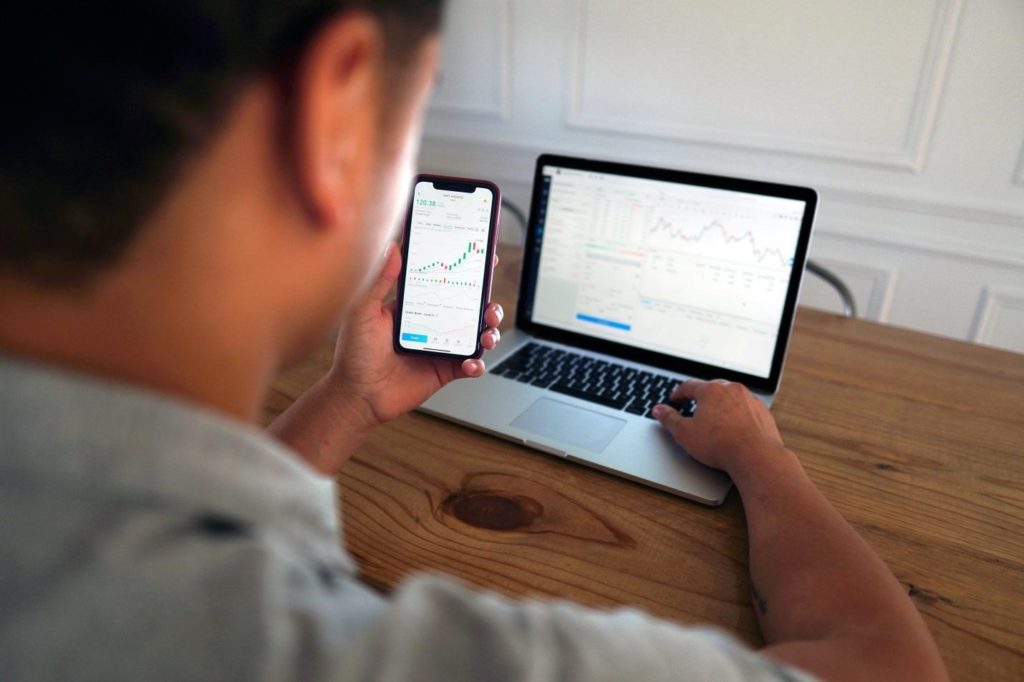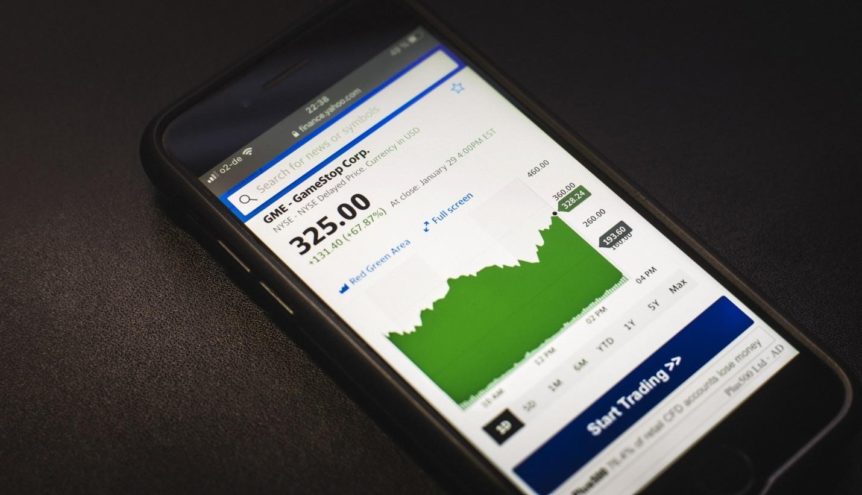A few weeks ago, a group of investors on Reddit gave new meaning to the term “social movement” after banding together and encouraging anyone who would listen to invest in GameStop shares.
The movement, which first started on WallStreetBets – a forum on the popular social platform –, was aimed at punishing Wall Street investors, many of whom were hedge funds that bet against the one-time retail giant’s stock.
If you’re one of those “yester-year” gamers, who grew up having to endure long queues outside GameStop stores for their console launches, then the move by these Wall Street short-sellers likely struck a nerve.
It certainly did among contributors of Reddit WallStreetBets, who went ahead to launch an all-out attack against shark investors who profit from the destruction of well-known retail brands. Their weapon of choice: Robinhood.
The real question is: Did Robinhood act illegally in the GameStop short squeeze? Furthermore, is it illegal for Robinhood to restrict trading? Before we can answer these questions, let’s start from the beginning.
What Does It Mean to Short a Stock
For most people, investing in the stock market is a long-term affair. You buy stock belonging to a specific entity at the current share price, hold on to the said stock, and sell it for a profit in the future when the price goes up.
It’s all pretty straightforward. In this investment strategy, you’re betting on the company’s success since it is directly tied to your success as a retail investor.
A lesser-known investment strategy involves short trading, or short selling, as it’s often called. In this case, you profit off a drop in the share price of the company you invest in. Short-selling is often used when an investor anticipates that the price of a particular security will fall.
Rather than take the traditional buy-low-sell-high approach for long stock positions, an investor does the reverse: sell-high-buy-low, except, in this case, they aren’t using any of their money to do it.
How Short Selling Works – An Example
Let’s say you want to short a stock belonging to Acme Corp. You would approach an investment brokerage that allows short trading on its platform. Remember, the broker holds a large portfolio of stocks belonging to several different investors.
You would then “borrow” X number of shares from the brokerage with an agreement to return them at a later date.
This agreement would be subject to a predetermined interest rate, collateral, and all other applicable fees the broker may require. It would then transfer the requested shares, which it currently holds in its portfolio (on behalf of other investors), to you.
Once the transfer is complete, and you now have X number of shares in your trading account, you then proceed to sell them at their current market price. From that point on, it’s a waiting game.
When the share price falls, you then go back and buy the same number (X) of shares, except, this time, it will be at a significantly lower price point. You’ll then “payback” the borrowed shares to the broker and pocket the difference in cash.
Keep in mind that this strategy only works if the share price falls. If it goes the other way, you will lose a significant amount of money since you would have to buy back the stock at a much higher price per share.
Short Squeeze Stocks
Sometimes, the market forces of demand and supply could have a big impact on the price of stocks.
If big sharks and a huge number of retail investors start buying lots of shares in a particular company, it drives up their demand. This, in turn, drives up their share price even when the company’s outlook has not changed.
When this surge in demand kicks in, the brokers need to get back the shares they lent out to short traders.
These individuals are left with no choice but to yield to pressure and buy up the shares they owe at a higher price than what they initially sold them to close their positions.
The result? They end up losing a significant amount of money. This standoff is referred to as a short squeeze.
GameStop Short
It’s no secret that the GameStop share price has been on a downward spiral for several years now. Short-selling hedge funds have been making a fortune from the falling stock price of the former gaming retail giant.
However, a recent surge in the number of subscribers triggered a spike in the company’s share price, which went up by more than 14,000%.
This put the “squeeze” on these hedge funds and other short investors that bet on the company’s downfall. Retail trading in GameStop stock was made easier through commission-free platforms like E-Trade and Robinhood.
What Is Robinhood
Robinhood was founded in 2013 as a financial services provider whose primary mission, according to the firm, is to “democratize the financial sector” to give regular Joes the chance to make retail investments at no cost.
Its most popular product is its trading app, which is designed to make it simple and fun to trade stocks without any third-party intervention from financial brokers and all the associated fees that come with them.
In addition to stock trading, the company also specializes in cryptocurrency trading and cash management accounts.
Can you short sell on Robinhood? The short answer is – no, you can’t.
The app targets startup investors. As a result, it does not have many of the sophisticated trading tools that other mainstream brokerage firms offer.

The Genesis of the Wallstreetbets Robinhood Showdown
When Robinhood became the app of choice for enthusiastic investors looking to trade GameStop stocks, it hit a record high of 2.5 million+ active users daily.
While some traders were using the app to buy GameStop shares, several others used the Robinhood options trading feature to bet on the opposite side of the shorts.
These option bets involved getting into long-term contracts that give users the “option” to purchase GameStop stock at a specific predetermined price in the future. If the stock price goes up, the trader can purchase the stock at that price and sell it for a profit.
Everything appeared to be going well until the company restricted users from buying stock or taking part in any other form of trading in GameStop shares, as well as those of other companies like Nokia and AMC.
It only allowed them to sell their existing securities and close their positions.
Naturally, the company received a lot of backlash from users over its handling of the entire fiasco, with many accusing it of market manipulation. However, Robinhood asserted that the trading restrictions it enforced all complied with the existing market regulations.
Day Trading – Is It Legal

Day trading is a strategy some investors employ to buy and sell stock throughout the day, hoping that their price will continue to rise for the few minutes (or seconds) they own the stock.
The idea behind this is to quickly lock-in profits to get an immediate return on their investment. While this practice is not illegal, nor is it unethical, there’s an inherent amount of risk involved with this approach.
For one thing, day traders usually buy stock using borrowed funds. Most retail investors don’t have the patience, financial muscle, risk appetite, or temperament to make profitable long-term stock investments and handle the devastating losses that may come with day trading. If anything, it is more of gambling than it is actual trading.
The Financial Industry Regulatory Authority (FINRA) has put in place a series of measures to curb pattern day-trading to protect investors from themselves.
According to the rules set out by the regulator, if you buy and sell a stock or open and close an option contract, all within the same day, that’s considered a day trade.
This isn’t necessarily an issue if it happens once in a long while, for any number of reasons.
On the other hand, executing four or more trades representing more than six percent of all the transactions in your margin account, you would be considered a pattern day trader within a five-day trading period.
Robinhood Day Trading Rules
The Robinhood day trading rules generally limit users to making no more than three day-trades within a five-day trading period, except in instances where the trader in question has a portfolio value of at least $25,000 (excluding cryptocurrency positions) at the end of the previous day.
A trader’s portfolio value, according to the brokerage, is the total sum of their cash, stocks, and open option contracts.
Traders, who don’t meet this minimum requirement, and exceed the number of day trades allowed within the five-day window, can expect to have their accounts flagged and restricted for 90 days.
You would only be able to resume trading once this period elapses or when you raise your portfolio value to the required $25,000-threshold.
It is entirely likely that the majority of individuals who traded in GameStop stock were not aware of this rule when they had their accounts restricted.
If this was indeed the case, then the brokerage firm did not violate the regulator’s FINRA guidelines. As a result, any Robinhood lawsuit brought against the broker on this basis would have no merit in a court of law.
However, that wasn’t the only reason behind the Robinhood restrictions placed on GameStop trades – at least, not the main one.
NSCC Capital Requirements
As the price of GameStop stock continued to soar, with more and more people jumping on the Robinhood app to trade, the brokerage needed to have a substantial amount of money on standby to process all the trades coming in through its clearinghouse.
That’s where cash and shares get sent back and forth between the firm and other clearinghouses to complete the trades.
The National Securities Clearing Corporation (NSCC), whose role is to provide central custody, clearing, and settlement services to the financial markets, imposes a capital requirement on broker firms.
The regulator has a formula it uses to determine how much money the brokers need to deposit with them.
This is based on the value of shares being traded at any given time and the associated risk exposure should the stock price plummet. The risk factor has a multiplier effect on the capital requirement.
The NSCC issued Robinhood with a deposit request of $3 billion. By that point, the company had only managed to put together $2 billion.
As a result, it had to suspend trading on GameStop stock and that of a few other companies until it fulfilled the regulator’s capital requirements to cover stock trades.
This move infuriated many retail investors, with the majority wanting to know: Can Robinhood be sued for restricting trades on GameStop stock amid an unprecedented rise in the share price?
Robinhood Class Action Lawsuits
At the time of this publication, the brokerage was facing more than 35 civil complaints against them.
Brendon Nelson was the first to sue the company for what he described as “willfully, purposefully, and knowingly” depriving users of the ability to invest in the open stock market. Several internet users welcomed the move, with many wanting to join the Robinhood class action lawsuit.
Robinhood’s terms and conditions, which users agree to when they first signup on the platform, give the broker the right and sole discretion to restrict, cancel, block, and even delete users’ accounts on its platform.
There’s also an arbitration clause that limits the avenues through which aggrieved customers can seek legal redress.
In part, it states that by using its services, both the firm and its customers give up the right to file lawsuits against each other in a court of law and the right to trial by jury.
While class-action suits are a way to by-pass arbitration clauses, it is up to the plaintiffs’ lawyers to convince the judge to hear the matter in court instead of going through an arbitration process.
What’s the Verdict?
Did Robinhood act illegally in the GameStop short squeeze? It would appear not.
By users trading on the platform, they agree to the terms of use and conditions of the app as set out by the brokerage.
One of these includes restricting users if they exceed their day trading limits.
Moreover, it would have been illegal for the firm to allow trading to continue on GameStop stocks before meeting the capital requirements set out by the NSCC.
If, however, the Securities and Exchange Commission (SEC) finds evidence that Robinhood used underhanded tactics to manipulate trading activity on its platform, then it will have a case to answer.
Have any legal questions for us? Live Chat with one of our attorneys today.
